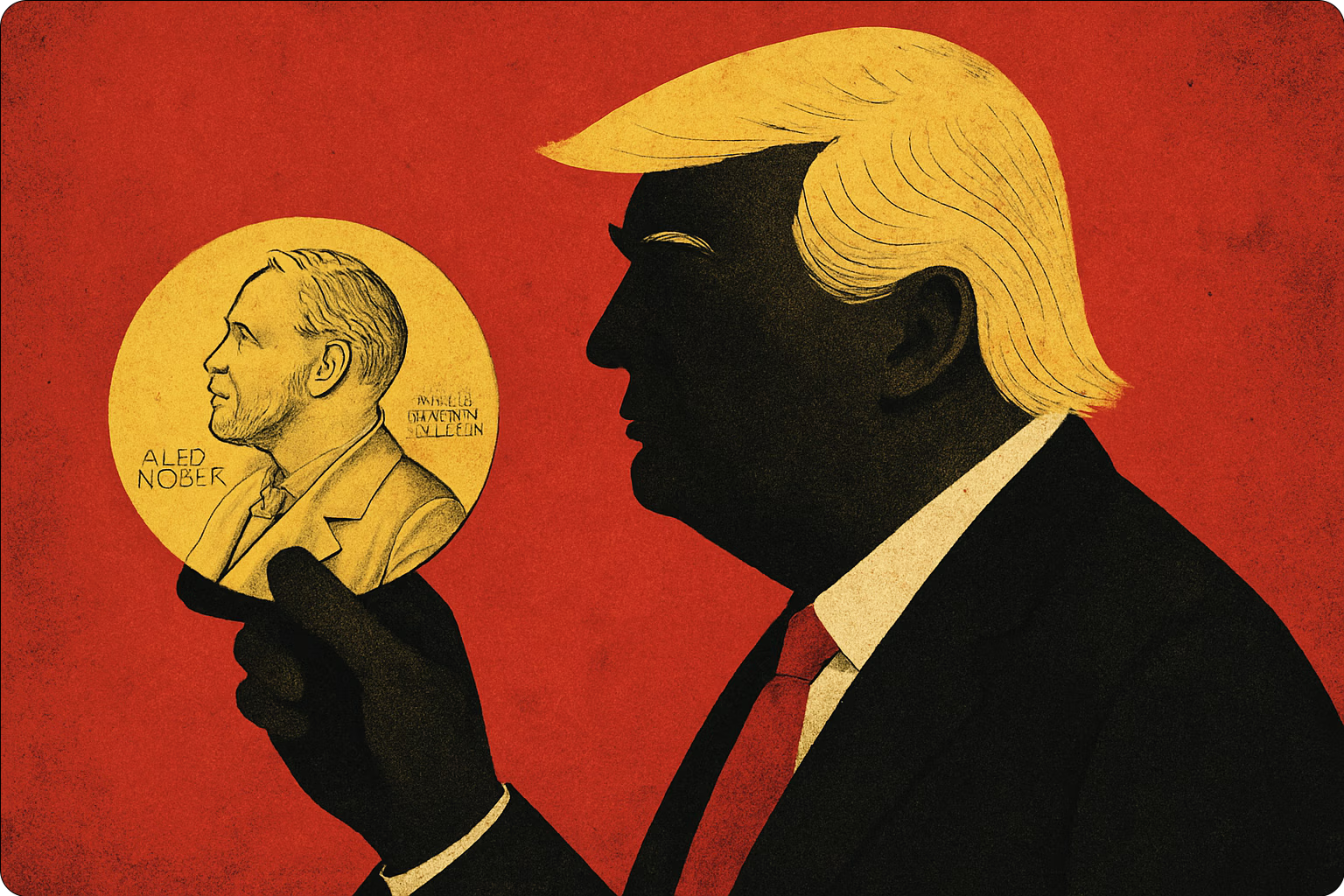Donald Trump once again cast himself at the center of the global stage—this time as a peacemaker. At a meeting with the military leadership, he claimed that the number of wars he had prevented could reach eight if Hamas accepted his peace plan. He added that a refusal by the Nobel Committee to award him the Peace Prize would be “a great insult to the United States.” The White House had already formally nominated him back in August.
It all comes across as an egocentric performance, where an international prize ceases to be a symbol of recognition for efforts toward peace and instead becomes another prop in a personal political campaign. Which raises the opposite question: would the real insult not be the very possibility of awarding it to a man who has turned international diplomacy into a show?
Trump’s address bore all the hallmarks of his trademark style—the transformation of a serious issue into a performance with himself at center stage. Peace initiatives were framed not as the outcome of protracted negotiations or compromises, but as personal victories for a politician long accustomed to selling himself as a brand. In this logic, the Nobel Peace Prize is not international recognition of genuine efforts but a campaign prop, a trophy to be showcased to the electorate.
Equally telling is Trump’s penchant for promising instant fixes that in reality remain little more than grandiose declarations. His claim that he could end the war in Ukraine within 24 hours never advanced beyond words. It was followed by neither a concrete plan nor a coherent strategy—only a series of erratic moves and pronouncements.
The Nobel Peace Prize has long attracted controversy. In 2009, it was awarded to Barack Obama virtually in advance, just as he assumed the presidency. Earlier still, the decision to honor Henry Kissinger—whose name for many is more closely associated with wars than with peace—sparked uproar. Such choices entrenched the prize’s reputation as a tool of political expediency rather than a purely moral authority.
Even against that backdrop of contentious episodes, Trump’s candidacy stands out as exceptional. His so-called “peace initiatives” have more often resembled campaign spectacle than the product of sustained diplomacy. Where laureates are expected to show consistency and a willingness to pursue difficult compromises, Trump offers sweeping promises and instant fixes that collapse into empty declarations or gestures leaving conflicts fundamentally unchanged.
To grasp how disproportionate Trump’s claims sound, one need only recall those for whom the Nobel Peace Prize marked recognition of genuine sacrifice. Nelson Mandela, who spent decades in prison for his fight against apartheid. Malala Yousafzai, who miraculously survived a Taliban assassination attempt and went on to champion girls’ right to education. Shirin Ebadi, who under Iran’s regime defended the rights of women and political prisoners.
Their contributions to peace were bound up with personal risk, perseverance, and a readiness to sacrifice their own safety. Their stories contained no theatrical pronouncements or instant “24-hour solutions.” They worked over years and decades, laying the groundwork for real change.
Against that backdrop, Trump appears as an incongruous figure: his claim to the prize rests not on the practice of peacemaking but on the logic of political theater.
For Trump, the Nobel Prize is not about global recognition but a tool of domestic politics. When he says it should be “awarded to the country,” what he really means is a personal trophy to flaunt at rallies and in campaign ads. The logic is straightforward: if the world respects Trump, then it respects America.
Such framing resonates with an electoral audience that views international awards as part of national competition. Yet behind this patriotic veneer lies the cultivation of a personality cult: the Nobel Prize becomes just another stage prop, where the starring role belongs not to peace, nor even to the United States, but to Trump himself.
When Trump claims that denying him the Nobel Peace Prize would be an insult to the United States, he twists the terms of debate. In truth, the greater insult may lie in the prospect of the prize being awarded to him. The prize’s value has always rested not only on political circumstance but also on trust in its symbolic weight.
If the award becomes part of an election spectacle, its prestige is diluted and the very idea of peacemaking loses meaning. The central question, then, is not whether Trump deserves a Nobel, but whether the prize itself can withstand another bout of politicization without becoming nothing more than a prop in the show.
